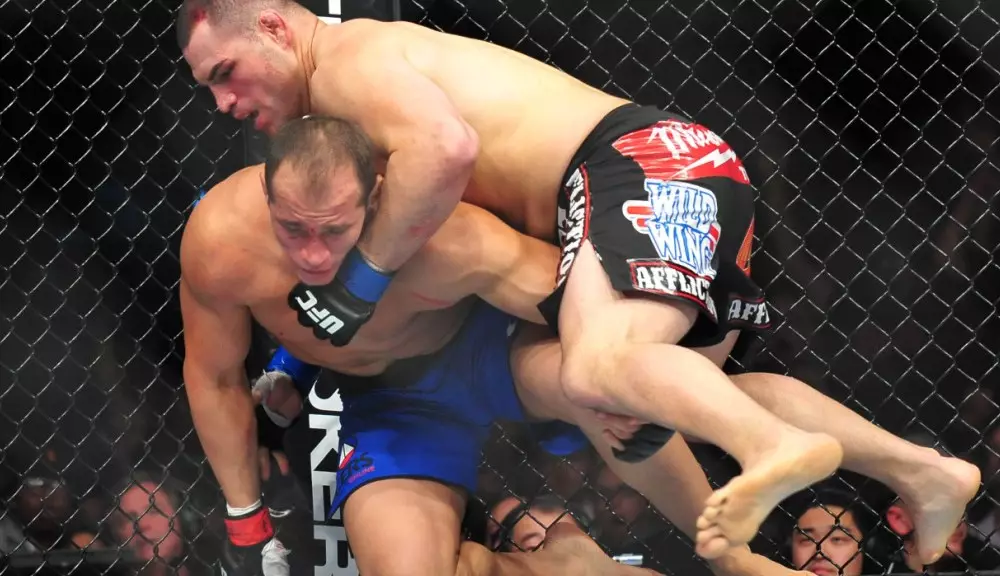Cain Velasquez is often remembered as one of the greatest heavyweights in mixed martial arts history. With an impressive record of 14 wins and only 3 losses, his time in the UFC was marked by domination and skill. Velasquez is a two-time heavyweight champion, renowned for his relentless pressure in the octagon and an ability to dismantle opponents through a combination of striking and wrestling. Unfortunately, his career was marred by injuries, which ultimately led to his retirement in 2019. This premature end to his fighting days left many fans pondering what could have been had he remained injury-free.
In a recent discussion on the “Basement Talk” podcast, Velasquez reflected on how he would have fared against Jon Jones, arguably the most skilled fighter in MMA history. Despite expressing respect for Jones’s skill set, Velasquez acknowledged that even in his prime, confronting “Bones” would have been a significant challenge. He characterized Jones as a formidable “boogeyman,” which speaks to Jones’s reputation for evolving his game and outmaneuvering opponents. Velasquez remarked that this matchup would have been among the most exciting, as he believed he could neutralize Jones’s strengths and engage him on a tactical level, showcasing a fight of contrasting styles that fans could have eagerly anticipated.
Aspinall, as the interim heavyweight champion, presents another intriguing matchup for Velasquez. The young fighter has demonstrated remarkable grappling and striking skills, alongside a high fight IQ. While Aspinall wrestles effectively, Velasquez was confident that he could impose his wrestling game on him, claiming: “When I get onto somebody’s legs, I’m taking him down.” This statement reflects not only Velasquez’s self-assurance but also his belief that the wrestling fundamentals could overpower Aspinall’s striking prowess. As a master of elevating control in grappling, Velasquez’s perspective provides insight into the tactical mindset he adopted as a fighter.
The MMA landscape is defined by its ever-evolving nature, complete with numerous fighters breaking into stardom and shaping the game in revolutionary ways. With Velasquez stepping away just as a new generation emerged, one can’t help but imagine the epic battles he could have engaged in, especially against fighters like Jones and Aspinall. Would Velasquez have claimed victory, or would he have faced the same fate as some of his contemporaries? The mystery surrounding these hypothetical matchups propels a sense of loss when reflecting upon his career—but also adds to his legacy as a competitor who inspired many with his zeal, resilience, and unmatched ferocity.
Cain Velasquez’s MMA journey may have concluded earlier than desired, but the speculative landscapes it leaves behind will persist. As fans continue to ponder how he would stack against heavyweights across eras, they will invariably come back to the idea that Velasquez’s prime held limitless potential—a narrative shaped by competition, tactical brilliance, and, ultimately, untimely injury.

